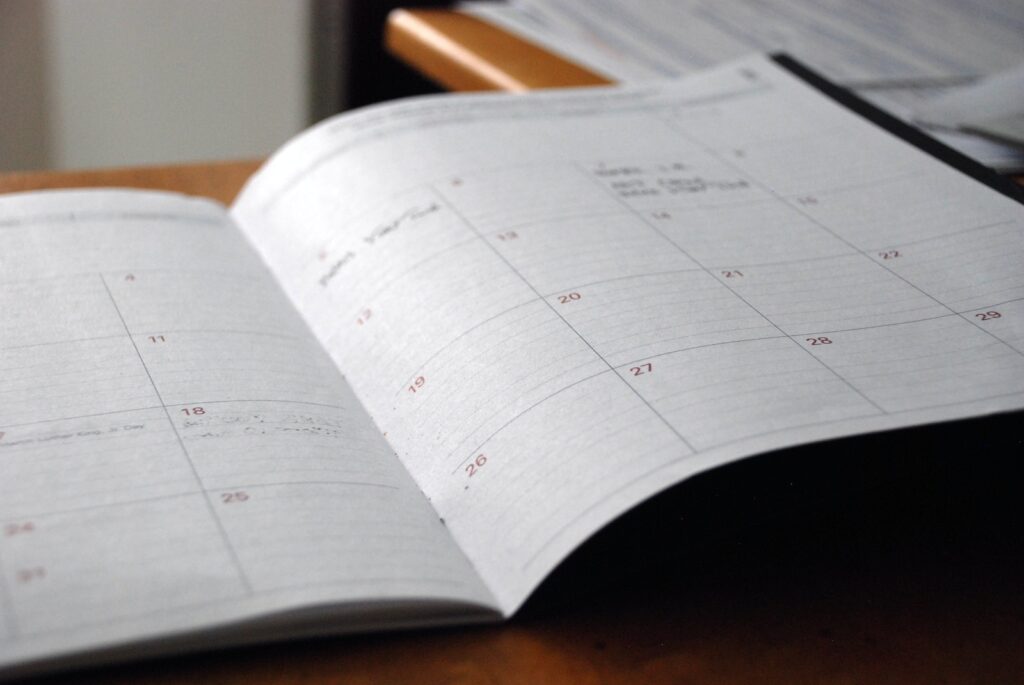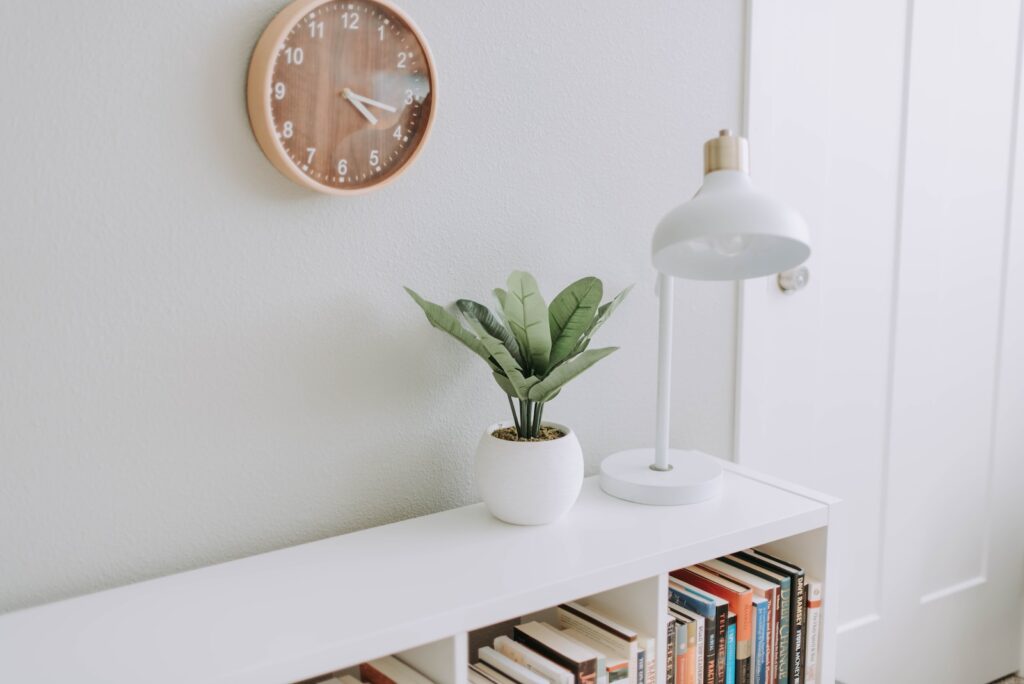To understand why decluttering is important, you need to learn about the benefits of regular decluttering and the negative effects of clutter. Regular decluttering can bring mental clarity, lower stress levels and help you stay organized. In contrast, clutter can lead to feelings of overwhelm, anxiety and add to the time it takes to complete tasks.
Benefits of Regular Decluttering
Regular Decluttering: The Importance of Organizing Your Space
Maintaining a clutter-free environment has numerous benefits to one’s well-being. Here are five reasons why regular decluttering is crucial for a happy and healthy lifestyle:
- Reduces Stress: A clean and organized space helps reduce stress levels, allowing you to feel more relaxed during your day-to-day life.
- Increases Productivity: By organizing your belongings, you can save time and increase productivity by finding the things you need quickly and easily.
- Better Sleep Quality: A tidy bedroom can help improve sleep quality, as it allows for a clear mind before bed.
- Improves Overall Health: A decluttered environment reduces allergens that can cause respiratory problems, leading to better health overall.
- Mental Clarity: An organized workspace can improve mental clarity and reduce decision fatigue.
In addition to these fantastic benefits, clearing out unwanted possessions can give way to new opportunities. With minimal belongings in the way, one can have more room for personal development and focus on self-improvement.
According to studies conducted by UCLA’s Center on Everyday Lives and Families (CELF), American homes have reached an all-time high of clutter levels with 3/4ths of garages not being used to store vehicles.
Clutter: the only thing standing between you and your dream of finding your keys on the first try.
Negative Effects of Clutter
Clutter Consequences:
Unorganized belongings can lead to Negative Effects of Clutter, causing various problems to your daily life and mental well-being. These problems include:
- Increased Stress levels and Anxiety
- Distraction and Procrastination
- Lack of Focus and Productivity
- Poor Physical Health
- Decreased Quality of Life
Clutter can increase cortisol, the hormone known for regulating stress, leading to higher anxiety levels. Additionally, it can cause a lack of focus which might affect productivity. Poor sleep quality, concentration issues can also arise from the chaos that clutter provides.
For instance, Joanne had always been a busy mom dealing with multiple responsibilities. One day she realized that she no longer could tolerate having persistent headaches and poor health conditions. From there on, she saw the importance of decluttering which helped her find peace in mind amidst of her busy schedule.
“Declutter your closet as often as you change your socks, unless you’re into the whole socks-with-sandals look.”
How Frequently Should You Declutter Your Closet?
To regularly declutter your closet with ease and efficiency, explore the factors to consider and recommended frequency based on your lifestyle. These two sub-sections will help you determine how often you should declutter your closet for a more organized and stress-free life.
Factors to Consider
It is essential to understand the variables involved in determining how often one should declutter their closet. Factors to consider include the size of your wardrobe, lifestyle, and available space.
The table below illustrates additional factors that can impact how often you should declutter your closet. It includes clothing types, frequency of use, quality, and personal preferences.
| Factor | Description |
|---|---|
| Clothing Types | Different types may last longer or wear out fast |
| Frequency of Use | Items worn more frequently may need more cleaning |
| Quality | Investing in durable clothes can reduce clutter |
| Personal Style | Some people prefer to have fewer items in their wardrobe |
Aside from these factors, it is essential to consider unique details such as changes in weight or clothing trends/goals. Neglecting these variables can lead to a pile-up of overlooked items.
Decluttering regularly can save time and reduce stress levels while avoiding the cost of replacing lost or damaged items. It’s okay if there are modifications to personalize your approach; find what works best for you.
Don’t miss out! Create a routine for periodic checks on your attire following the guidelines above. Start today!
Whether you’re a minimalist or a hoarder, the recommended frequency for decluttering your closet is directly proportional to the amount of stress you can handle.
Recommended Frequency Based on Lifestyle
Maintaining Wardrobe Functionality Based on Daily Habits
Regular closet decluttering is essential to manage a minimalist lifestyle. The ideal Recommended Frequency Based on Lifestyle varies for each individual. Factors such as space limitation, fast-paced lifestyle, and clutter tendency determine the frequency of decluttering one’s wardrobe.
- For frequent travelers, decluttering quarterly or bi-annually suits their needs.
- Professionals can organize their wardrobe weekly or monthly to save time.
- Unrestricted individuals should declutter every season
- Those with limited storage must clear out every few months.
- A household with children might need to reorganize twice or thrice a year.
- An eco-conscious individual can donate gently-used clothes seasonally and recycle damaged pieces immediately.
It’s crucial to keep an inventory before each round of decluttering. One can maintain a semiannual, digital logbook of item quantity and types in the wardrobe to ensure adequate organization decisions.
Keeping a regular check on clothes heightens accountability towards sustainability efforts. In turn, it fosters careful use of money and personal resources while reducing carbon footprint.
Wardrobe malfunctions during an unexpected call are not unheard of scenarios. Sarah dressed casually for work before her promotion; She kept minimal clothing rotation until she realized her attire choices reflected unprofessionalism several times. The realization dawned that regular closet revisions could have saved her image.
Decluttering is not necessarily about throwing things away; it’s about consciously using our resources efficiently and mindfully monitoring our habits related values.
Decluttering your closet may seem daunting, but with these simple steps, you’ll be one step closer to a minimalist wardrobe and a guilt-free shopping spree.
Steps to Declutter Your Closet
To efficiently declutter your closet with ease, this section on steps to declutter your closet with preparation, sorting, and organizing as solutions, can be helpful. These sub-sections will guide you on how to start, what to keep, and how to arrange everything in order.
Preparation
To adequately prepare for decluttering your closet, it’s crucial to follow a few essential steps. These steps assist in the process of organizing and sorting items, ultimately leading to an organized closet.
- Step 1: Begin by setting measurable goals. Understand what you would like to achieve with decluttering your closet. Would you like to minimize its contents or reorganize it? Setting clear goals will enable you to have a benchmark for success as you go through the decluttering process.
- Step 2: Create an action plan that outlines how you will attain these objectives. This may include creating an inventory of the closet items or outlining the different categories of items that need sorting.
- Step 3: Find the appropriate materials needed for decluttering. This includes cardboard boxes or bins to store sorted items, hangers for categorizing clothes, labels, and markers to label the bins accordingly.
In addition, don’t forget to allocate ample time for decluttering your wardrobe. Rushing through this project might lead to disorganization and cause confusion during later stages when trying to sort out the items.
It’s essential not just to organize clothes but all other accessories too- bags, shoes, belts, hats etc., opening up more space while minimizing clutter. According to Forbes magazine, “The average person only wears about 20% of what they own.”
Sorting through your closet is like playing a game of ‘keep, toss, or donate’ with your own clothes, and let’s be real, we’re all just trying to win.
Sorting
When it comes to the organization of your closet, one critical step is Categorizing. Categorizing items helps you create a structure for your wardrobe and makes it easier to find specific things. Sort through each item and decide whether it falls into the categories of tops, bottoms, dresses, outerwear, accessories or shoes.
| Category | Items |
|---|---|
| Tops | T-Shirts, Blouses, Sweaters |
| Bottoms | Pants, Shorts, Skirts |
| Dresses | Casual Dresses, Formal Dresses |
| Outerwear | Jackets, Coats |
| Accessories | Jewelry, Belts |
| Shoes | Sneakers, Boots |
Consider additional categories that suit your specific needs and lifestyle. Over time you might find that categorizing items has many benefits such as helping you identify gaps in your wardrobe and identifying which pieces in your wardrobe are not being utilized effectively.
Next up is to declutter unwanted clothes. By eliminating anything that no longer brings joy or serves a purpose in our lives can create space for new things that do.
Create this sense of motivation within yourself by imagining the possibilities and the extraordinary potential for what could come out of organizing your closet. Be mindful of how much more efficient you could become with better access to your favorite clothing items while being able to let go of those who aren’t serving you anymore.
Organizing your closet is like solving a puzzle, except you’re missing half the pieces and the reward for finishing is a cleaner wardrobe instead of a picture of a cute puppy.
Organizing
When it comes to streamlining your wardrobe, there are a plethora of organizing techniques that come in handy. Here are four strategies that will help you declutter your closet efficiently:
- Start by Sorting
- Adopt a Capsule Wardrobe Concept
- Optimize Your Closet Space
- Ditch Unused Items Frequently
In addition to these tips, consider donating items you don’t wear anymore. This can make room for new clothes while benefiting someone else in need.
A word of caution: While the KonMari method can be effective for some individuals, remember that everyone’s organizational style is different. Don’t feel pressured to follow any specific rules – find what works best for you and stick with it.
A friend once confided in me about her own struggles with keeping her closet tidy. She commented on how overwhelmed she felt by the sheer volume of clothing she owned and how hard it was to get started on purging items she no longer wore. After implementing these aforementioned techniques, however, my friend was pleased to report feeling less anxious about getting dressed and had even discovered new outfits as a result!
Because a cluttered closet is a lot like a bad ex, it’s time to let go and move on with these helpful tips.
Tips to Help You Maintain a Clutter-Free Closet
To help you maintain a clutter-free closet with ‘Tips to Help You Maintain a Clutter-Free Closet’ and keep your clothes organized, you can adopt a one-in, one-out policy, regularly evaluate your closet, and avoid holding on to items for sentimental reasons. These sub-sections will provide you with solutions to keep your closet neat and tidy.
Adopt a One-in, One-out Policy
One of the ways to keep your closet clutter-free is to maintain a balance between clothes coming in and leaving the closet. This semantic variation of the one-in, one-out policy reminds you that before bringing in any new items, you must let go of something old.
To adopt this policy effectively, follow these three steps:
- Do regular purges: Go through your closet periodically and declutter items that no longer fit or are not worn. Consider donating or selling clothes that are still in good condition.
- Create a system: Decide on a specific location for clothes being purged and stick to it. Separate them from the rest of your wardrobe so you can easily see if there’s something that needs to leave the closet before bringing anything new in.
- Think before you buy: Before purchasing an item, consider whether you already have something similar. If so, decide which one should be let go to make room for the new item, keeping the balance between what’s staying and going.
Keeping a balance between what comes in and out of your closet has unique benefits. It helps limit impulse purchases, reduces waste by avoiding duplicates or unused items, frees up space for new fashion statements or special occasions, all while keeping your wardrobe minimal yet functional.
A friend struggled with decluttering her wardrobe until she adopted this policy. She shared how every time she bought something new without letting go of something first was like taking one step forward and two steps back. The one-in-one-out policy helped transition her towards minimalism while still satisfying her love for shopping within reasonable bounds.
Remember, a cluttered closet is just an excuse to go shopping…for more storage containers.
Regularly Evaluate Your Closet
Evaluating Your Wardrobe Regularly
To keep your closet organized, it is important to assess your clothes regularly. This helps to declutter and keep items that are still useful.
- Remove Clothes That Do Not Fit: If an item of clothing no longer fits, it is best to donate or sell them.
- Discard Worn-Out Clothes: Garments that have holes, rips, or stains should be thrown away because they cannot be repaired.
- Consider Your Lifestyle: If certain clothing items do not fit into your routine or lifestyle anymore, it might be time to let them go.
- Arrange Like Items Together: Grouping similar clothing categories makes it easier for you to find what you need when planning outfits.
- Think About the Time of Year: Seasonal rotation may reduce clutter in the closet. For example, store winter clothes during the summertime.
- Organize by Color: Sorting clothes by color gives a professional look while improving functionality.
Moreover, remember that assessment should always focus on constructing a practical wardrobe based on personal style.
To keep a decluttered closet interesting and stylish:
- Repurpose Clothes for Other Uses: An outdated T-shirt can become a nightshirt or workout outfit, etc.
- Donate to Charity: Donating clothes is a way to reduce clutter and benefit others in need.
- Invest in Quality Pieces: Investing in high-quality essentials builds a durable wardrobe with fewer pieces required.
- Keep Only What You Love and Passionately Use – The rest only takes up space.
Just because your ex gave you that sweater doesn’t mean you have to keep it in your closet like a shrine to failed relationships.
Avoid Holding on to Items for Sentimental Reasons
Many people struggle with keeping their closet organized due to sentimental attachments to certain items. It’s important to avoid clinging onto pieces solely for emotional reasons, as this can lead to clutter and disorganization. Instead, focus on the practicality and functionality of each item in your closet.
Consider whether you have worn or used an item in the past year, and if not, it may be time to let it go. Sentimentality can cloud our judgment and make us hold onto things that are no longer useful or necessary. This can also apply to clothing that no longer fits or is out of style.
It’s easy to become overwhelmed with sentimental items and lose sight of what is actually necessary in our closets. Remembering the purpose of a garment or accessory can help streamline our wardrobe and keep our closets clutter-free.
I once had a hard time decluttering my closet due to sentimental attachments to items I no longer wore. However, after taking a step back and evaluating the practicality of each piece, I was able to let go of unnecessary clutter and create a more organized space.
Remember, a clutter-free closet means a stress-free life, or at least a stress-free morning routine.
Conclusion
To conclude with the article “How often should I declutter my closet?”, your closet’s decluttering frequency depends upon your preferences, but it is essential to organize periodically. In a nutshell, decluttering helps you achieve an organized and stress-free life. Lastly, this section will include a recap of the importance of decluttering and some final thoughts and recommendations.
Recap of Importance of Decluttering
Having a Clutter-Free Life: A Recap of the Importance of Decluttering
Decluttering your living space and workspace is crucial for a clutter-free lifestyle. It allows you to organize your belongings, reducing stress and boosting productivity. By eliminating unnecessary physical items, you can also declutter your mind, increasing focus and creativity. Additionally, regular decluttering can help you save time by making it easier to find the things you need quickly.
In achieving these benefits of decluttering, many people utilize various techniques such as the KonMari method or minimalism. Each approach emphasizes different aspects of the decluttering process, but all agree on the significance of organizing and simplifying one’s possessions.
Further emphasizing the importance of decluttering, studies have shown that having an organized environment can lead to improved mental health outcomes. Moreover, donating or selling unused items can be environmentally friendly by reducing waste.
As seen from history, maintaining a clutter-free life has been a pursuit for centuries. From ancient Eastern practices like Feng Shui to contemporary Western trends like minimalism, people have recognized the benefits of living simply with less clutter long before modern society coined the term “decluttering.”
Time to wrap things up and make recommendations, because nobody wants to be stuck here reading forever. Well, except for maybe that one weirdo in the back.
Final Thoughts and Recommendations.
Our Final Observations and Expert Advice encompass careful analysis of all the crucial factors discussed in this article. To begin with, it is imperative to prioritize flexibility, scalability, and sustainability while undertaking any business venture. Furthermore, investing in cutting-edge technologies and staying abreast of market trends can be game-changers for overall success.
Emphasizing more on maintaining a strong online presence through social media platforms or search engine optimization strategies can help reach out to potential customers globally. Additionally, engaging with clients and partners, providing top-notch customer service and personalized solutions can aid in building brand loyalty.
Finally, we strongly recommend keeping a close eye on emerging industries and disruptive innovations to stay ahead of the competition. Overall, implementing these strategies along with a comprehensive business plan can go a long way towards achieving sustainable growth and profitability.
Frequently Asked Questions
1. How often should I declutter my closet?
It’s recommended to declutter your closet every 6 months to a year.
2. What’s the benefit of decluttering my closet?
Decluttering your closet will not only make it easier to find and organize your clothes, but it can also help reduce stress and anxiety, increase productivity, and save money by avoiding unnecessary purchases.
3. How do I start decluttering my closet?
Start by sorting through all your clothes, separating them into piles of what you want to keep, donate or sell, and throw away. Then, organize the clothes you want to keep by category (e.g. shirts, pants, dresses, etc.) and by color within each category.
4. How can I maintain a clutter-free closet?
To maintain a clutter-free closet, avoid buying unnecessary clothes, regularly go through your wardrobe to get rid of items you no longer wear, and invest in organizational tools such as hangers, shoe racks, and drawers.
5. What should I do with clothes I no longer want?
You can donate or sell clothes in good condition, or throw away clothes that are no longer wearable. Many charities and non-profit organizations accept clothing donations. You can also sell clothes online on sites like Poshmark or eBay.
6. Should I hire a professional organizer to declutter my closet?
If you feel overwhelmed or don’t know where to start, hiring a professional organizer can be a great option. They can offer personalized advice and solutions to help you declutter your closet and maintain an organized space.
{
“@context”: “https://schema.org”,
“@type”: “FAQPage”,
“mainEntity”: [
{
“@type”: “Question”,
“name”: “How often should I declutter my closet?”,
“acceptedAnswer”: {
“@type”: “Answer”,
“text”: “It’s recommended to declutter your closet every 6 months to a year.”
}
},
{
“@type”: “Question”,
“name”: “What’s the benefit of decluttering my closet?”,
“acceptedAnswer”: {
“@type”: “Answer”,
“text”: “Decluttering your closet will not only make it easier to find and organize your clothes, but it can also help reduce stress and anxiety, increase productivity, and save money by avoiding unnecessary purchases.”
}
},
{
“@type”: “Question”,
“name”: “How do I start decluttering my closet?”,
“acceptedAnswer”: {
“@type”: “Answer”,
“text”: “Start by sorting through all your clothes, separating them into piles of what you want to keep, donate or sell, and throw away. Then, organize the clothes you want to keep by category (e.g. shirts, pants, dresses, etc.) and by color within each category.”
}
},
{
“@type”: “Question”,
“name”: “How can I maintain a clutter-free closet?”,
“acceptedAnswer”: {
“@type”: “Answer”,
“text”: “To maintain a clutter-free closet, avoid buying unnecessary clothes, regularly go through your wardrobe to get rid of items you no longer wear, and invest in organizational tools such as hangers, shoe racks, and drawers.”
}
},
{
“@type”: “Question”,
“name”: “What should I do with clothes I no longer want?”,
“acceptedAnswer”: {
“@type”: “Answer”,
“text”: “You can donate or sell clothes in good condition, or throw away clothes that are no longer wearable. Many charities and non-profit organizations accept clothing donations. You can also sell clothes online on sites like Poshmark or eBay.”
}
},
{
“@type”: “Question”,
“name”: “Should I hire a professional organizer to declutter my closet?”,
“acceptedAnswer”: {
“@type”: “Answer”,
“text”: “If you feel overwhelmed or don’t know where to start, hiring a professional organizer can be a great option. They can offer personalized advice and solutions to help you declutter your closet and maintain an organized space.”
}
}
]
}



